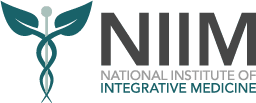10.12.22 update: Expressions of Interest for the Long-COVID-Trial have now closed.
If you are interested in making an appointment with a NIIM doctor specialising in Long-COVID, please ring the NIIM clinic on 03 9804 0646
The Alliance Long COVID-19 Treatment Trial
Development of a 2-stage nutraceutical treatment protocol for adults with long-COVID-19 syndrome, exploring underlying pathophysiology and treatment effectiveness
The study has been approved by the Human Research Ethics Commitee EC00436, and is registered at the ANZCTR clinical trial registry: ACTRN12622001204730p
Project explanation and objectives
A large number of people experience long-COVID symptoms persisting for weeks and months after overcoming the acute illness. Symptoms include chronic fatigue, breathlessness, joint pain, cough, neurological diseases, loss of sense of smell and/or taste.
This cohort study aims to explore the underlying causes of long COVID symptoms, and assess treatment effectiveness of a staged treatment approach of 2x 6 weeks.
This study is exploratory, and will provide important insights for protocol development for a larger cohort study.
Who can participate in this study?
You had Covid-19 and tested positive on a PCR or RAT test more than 3 months ago, and have persistent symptoms for longer than 3 months, and have a doctor’s referral.
The study involves:
- A series of online questionnaires focusing on your symptoms and medical history
- 3 appointments with the trial doctor over a period of 3 months
- Blood tests at baseline and 12 weeks include standard pathology tests and the NIIM Rare Cell & Pathogen Test
- After review of the blood test results, the trial doctor will refer you to Stage 1 intervention (0-6 weeks):
The first 6 weeks’ treatment period will be the same for all participants, and includes food-based nutrients and supplements. - At 6 week assessment by online questionnaire and the trial doctor. The trial doctor will allocate you to one in three intervention groups.
- Stage 2 (7-12th week): The second 6 week treatment program will be conducted in 3 groups:
Group 1: Intravenous Vitamin C therapy (IVC) – NIIM Clinic in Melbourne, VIC
Group 2: Kyolic & Curcumin & Omega-3 & NAC (N-acetyl-cysteine)
Group 3: Continuation of the food-based nutritional protocol - Final assessment by online questionnaire and trial doctor at 12 weeks
26.05.2025 update: Manuscript in preparation
Results from The Long-COVID Study
NIIM’s Research Department will soon release the final report from The Long-COVID Study. Our team are please to share the following excerpt from the report.
Background
Long-COVID, defined as persisting or developing health problems after acute COVID-19 infection, has affected up to 30-50% of adults, as reported in studies worldwide, including NIIM’s International Alliance COVID Treatment Study 2022. Symptoms lasting for months are often debilitating, and include fatigue, memory problems/ brain fog, shortness of breath, post-exertional malaise, and disturbed sleep.
Aims
In the Long-COVID study we aimed to examine the pathophysiology of Long-COVID, with particular focus on viral reactivation of latent viruses such as Epstein-Barr-Virus (EBV), Cyto-Megalo-Virus (CMV) and Herpes-Simplex-Virus (HSV). We have developed a novel blood test to assess viral reactivation, the NIIM Circulating Rare Cells (CRC) blood test. Furthermore, in a multi-centre 12-week treatment trial we assessed the effectiveness of selected integrative therapies on symptoms and viral reactivation.
Key Findings
- 75% of participants with Long-COVID had viral reactivation.
- Viral clearance and reduced viral load was achieved in 50% + 25% of participants with either 2-weekly IVC or immune-supportive oral supplements daily for 6 weeks.
- Viral clearance was significantly associated with symptom improvement, in particular fatigue, brain fog, and post-exertional malaise.
- Vaccination status was significantly related to risk of symptom relapse at 6 months post study, with 75-80% of unvaccinated participants remaining symptom-free compared to 20-25% in the vaccinated group.
The results of the study will be presented at the upcoming 10th Annual NIIM Symposium in September.
